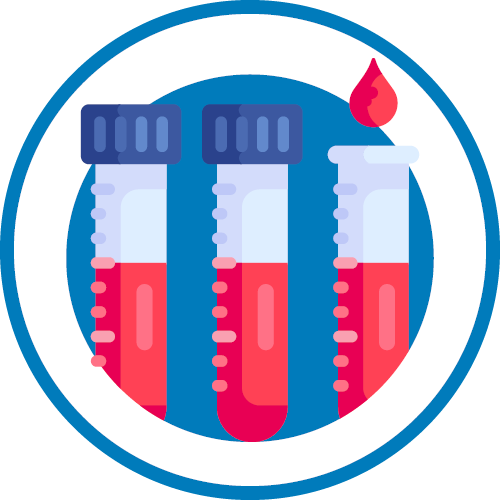For Participants
We couldn’t do it without you.
Thanks for being part of the Ontario Health Study (OHS). More than 80 promising research projects are already underway using the data you’ve provided — and there are many more to come. That’s why it’s important for you to stay involved! By completing our follow-up questionnaires, you’ll help give researchers across Canada even more data to work with to improve how cancer and chronic disease are detected and treated.
Current Activities
The Study is now seeking a second blood sample from some of the 41,000 OHS participants who provided their first blood sample between 2009 and 2017. Collecting up to 3,000 second blood samples will mean the Study can offer researchers the opportunity to explore various changes to elements within the blood over time. Investigating these ‘biomarkers,’ especially in people who have not been diagnosed with a major disease, could help researchers develop better diagnostic screening tools, or explore the mechanisms of healthy aging. Read more.
In January 2025 the Study launched the Follow-Up Questionnaire 2, which will collect updated information on participants’ current health and fill in some important gaps in our research data, such as mental well-being and access to health care services and preventive screenings. This questionnaire follows the previous Follow-Up Questionnaire, which ran from 2016-2018, and is the first questionnaire available to all participants in more than three years.
Taking part in Follow-Up Questionnaire 2 may be the first time you’ve logged into your OHS account in a while. The Study recently added an additional layer of security to help keep your data safe. Read more about 2-Step Verification here, or click here to view an instructional video.

Ongoing Activities
DNA samples from more than 20,550 OHS participants have been genotyped, providing an extensive and diverse dataset for research. With this sample size, researchers will have the ability uncover new insights into how genes are expressed and their potential role in health outcomes.
By January of 2023, nearly 10,000 OHS participants had provided up to three blood spot samples which were then analyzed for COVID-19 antibodies. Data from two of these three timepoints are now available to researchers.
Here’s a snapshot of data collected, between February 2021 to January 2023, for the COVID-19 Antibody Study:
22,120 CanPath participants, including 9,848 from the OHS (46%)
43% reported receiving two or fewer vaccine doses and 57% reported receiving three or more vaccine doses (data collected February 2021- January 2023).
Of the nearly 10,000 that provided bloodspot samples:
- 42.3% received Pfizer-BioNTech
- 10.3% received Moderna
- 4.1% received Oxford-AstraZeneca
- 28.1% received a combination of mRNA vaccines
- 15.1% received a combination of viral vector (Astra-Zeneca) and mRNA (Pfizer, Moderna) vaccines
35% had a SARS-CoV-2 infection. Of that group, 90% had antibodies against the nucleocapsid protein of the virus, signaling a prior infection
The OHS and CanPath COVID-19 Antibody Study was designed by Dr. Philip Awadalla and Kimberly Skead with Dr. Victoria Kirsh from the OHS, and Dr. Philippe Broët of CARTaGENE. Funding to conduct this Study has been provided by the Government of Canada, through Canada’s COVID-19 Immunity Task Force, and by the Canadian Institutes of Health Research.


Occupational data from the 2019 Work History Questionnaire, as well as brain imaging data collected from almost 3,100 OHS participants who also participated in an associated study (the Canadian Alliance for Health Hearts and Minds), are also now available to approved researchers.
The OHS team is making de-identified data and samples from the Study available to approved researchers in Ontario and internationally. See how the information you’ve provided has already been used by health scientists, and learn about ongoing studies.
Data collected from OHS participants are now being used in more than 60 research projects.
OHS Dataset
Online questionnaires submitted by more than 224,000 participant volunteers across Ontario
Unique data points available*
MRIs collected
By continuing to take part in the OHS, you’ll be helping to find new ways to prevent and treat major diseases like cancer, heart disease and diabetes. You’ll also help to improve the health of future generations.
*These 1,600+ data points are common to other population health studies in Canada and around the world, allowing researchers to accurately compare results between studies and explore more challenging research questions.
OHS Biobank
Blood samples collected

DNA samples genotyped
Physical measurements
Urine samples collected
Follow-up Questionnaires

By remaining involved in the OHS, you will be invited to complete periodic follow-up questionnaires which will track how your health changes over time. These questionnaires will also ask about your exposures to different chronic disease risk factors.



